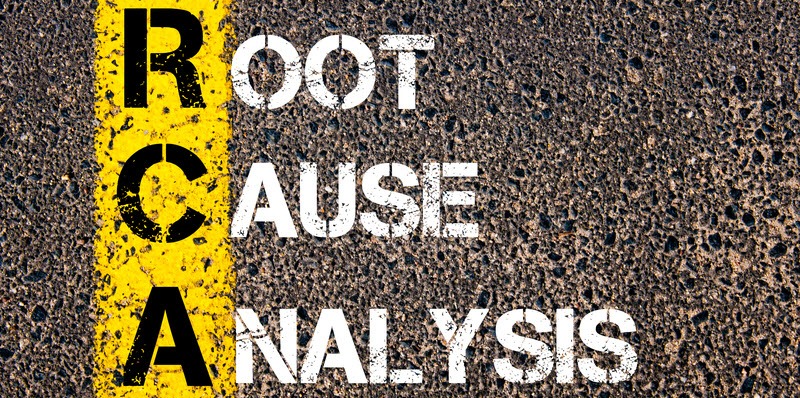RCA stands for ‘root cause analysis’. This term is generally used in quality management and training. RCA is, in fact, a problem-solving approach which focuses on the improvement of quality by understanding and resolving any root cause of a problem, incident or issue.
Definition
“An objective, thorough and disciplined approach employed to conclude the most possible underlying causes of problems and undesired events within an organisation with the aim of formulating and agreeing on corrective actions to at least mitigate if not eliminate those causes and so produce significant long term performance improvement.”
People Who Needs a RCA Training Course
Following personnel generally require RCA training course
- Quality managers
- Quality engineers
- The professional who use RCA in problem solving
- The organisations who are trying to eliminate their problems
- The organisations which are striving to conform with Risk pool schemes
- Organisations who would like to drive continual improvement
RCA is a recent phenomenon which is gradually and continuously evolving and it is still being treated like it is a random activity. Most organisations fail to get their employees an RCA training which includes great investigation techniques thus, they propagate the blame culture. They basically do not think of RCA as a process that is controlled.
RCA is the application in a different way of a series of well known, common sense techniques which used in a various combination can generate a systematic, quantified and authentic method to the identification, understanding, and resolution of underlying causes of underachieved quality in organisations.
Major Approaches Used For RCA
- 8D
- Gemba Gembutsu
- Plan, Do, Check, Act
Major Techniques Used For RCA
- 5 Why’s
- Brainstorming
- Cause and Effect Diagrams
- Cause and Escape Point
- Fault Tree Analysis
- Nominal Group Technique
- Pareto Analysis
- Poka Yoke (Mistake Proofing)
Besides the 5 whys of the root cause analysis, there are numerous other tools that can be used in resolving problems. Few of these tools are brainstorming, design of experiment, Pareto charts, flowcharts, fishbone diagrams, and numerous others. Many tools are being used together to accomplish the most fruitful outcome. For example, the 5 whys or brainstorming could be used to conjecture what might have gone incorrect, and then arrange the results in a fishbone diagram which would point you in the direction where the evidence needed to objectively determine whatever the root cause of the issue really is, can be found. Companies, in fact, need to stop assigning the job of root cause analysis to individuals without giving them the required tools and RCA training course.
Structure of a RCA Training Course
The RCA course structure is typically broken down into the natural RCA four-phase processes:
- Phase I: Problem identification
- Phase II: Problem description
- Phase III: Cause analysis
- Phase IV: Solution development
General Benefits of RCA Training Course
Attending an RCA training course will enable you to know the following:
- How a very basic analysis of a problem can be expanded to give more detail.
- How to give an accurate, precise, thorough and clear explanation of why a particular issue happened.
- Being able to ask the main questions to fully definition the problem.
- The mental subject that hold back group problem resolving.
- How issues and problems are related to the overall goals of an organisation.
- The important role played by a facilitator in accessing the know-how within an organisation.
- How human reliability and human factor fit into an investigation.
- How to avoid usual miscommunication traps which upset group problem resolving.
- Understanding how the basic “cause and effect” relationship magnifies the results.
- How to find the most efficient and effective combination of outcomes.
- How avoidance culture increase accountability.
- Facilitation guidelines and techniques for leading a problem-solving session.
Business Benefits of a RCA Training Course
- Understand and practically employ the basic methods associated with Root Cause Analysis (RCA).
- It helps to Identify where RCA can be used for best results.
- Coordinate and motivate the RCA team members to provide real, tangible solutions to the quality problems.
- Enables to train other members and organisations in the RCA methodology.
- It provides the opportunity to make financial savings.
- Becoming a Quality Management & Training (QM&T) validated and certificated RCA practitioner.
- It provides training to members who can further train other members and organisations.
Reasons for RCA:
- It is an important part of the policy and goals of the organisation.
- It provides long term improvements.
- Analysing a root cause is a mindset; it takes more time at first but is, in fact, a ‘high return on investment’ for eliminating fire fighting
If you are interested in arranging a RCA Training within your organisation, then please contact us to arrange a training for your employees.





